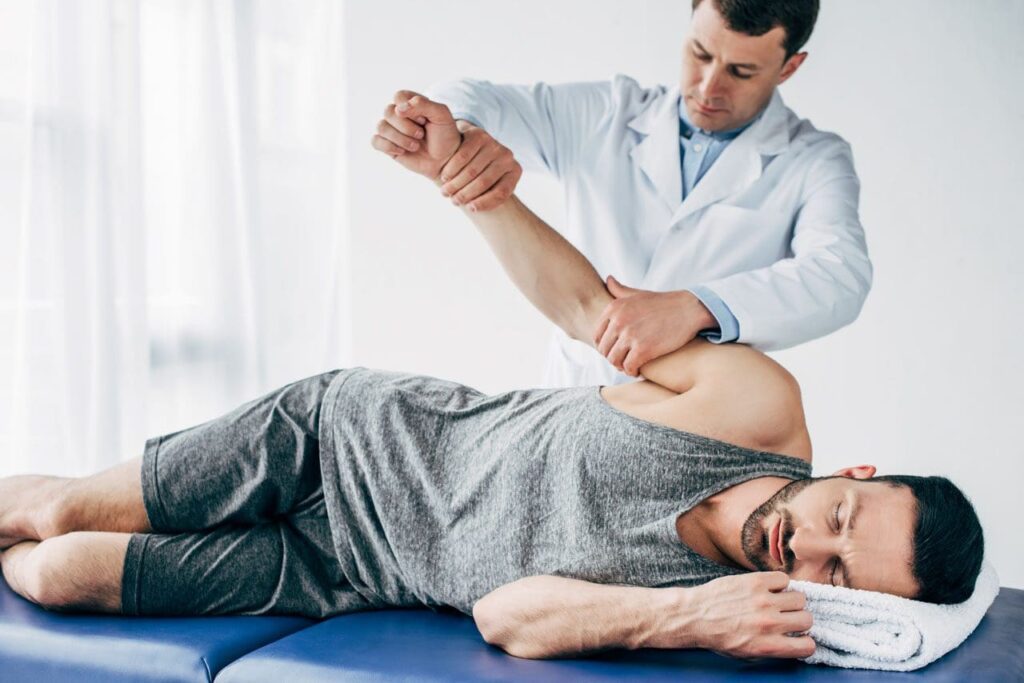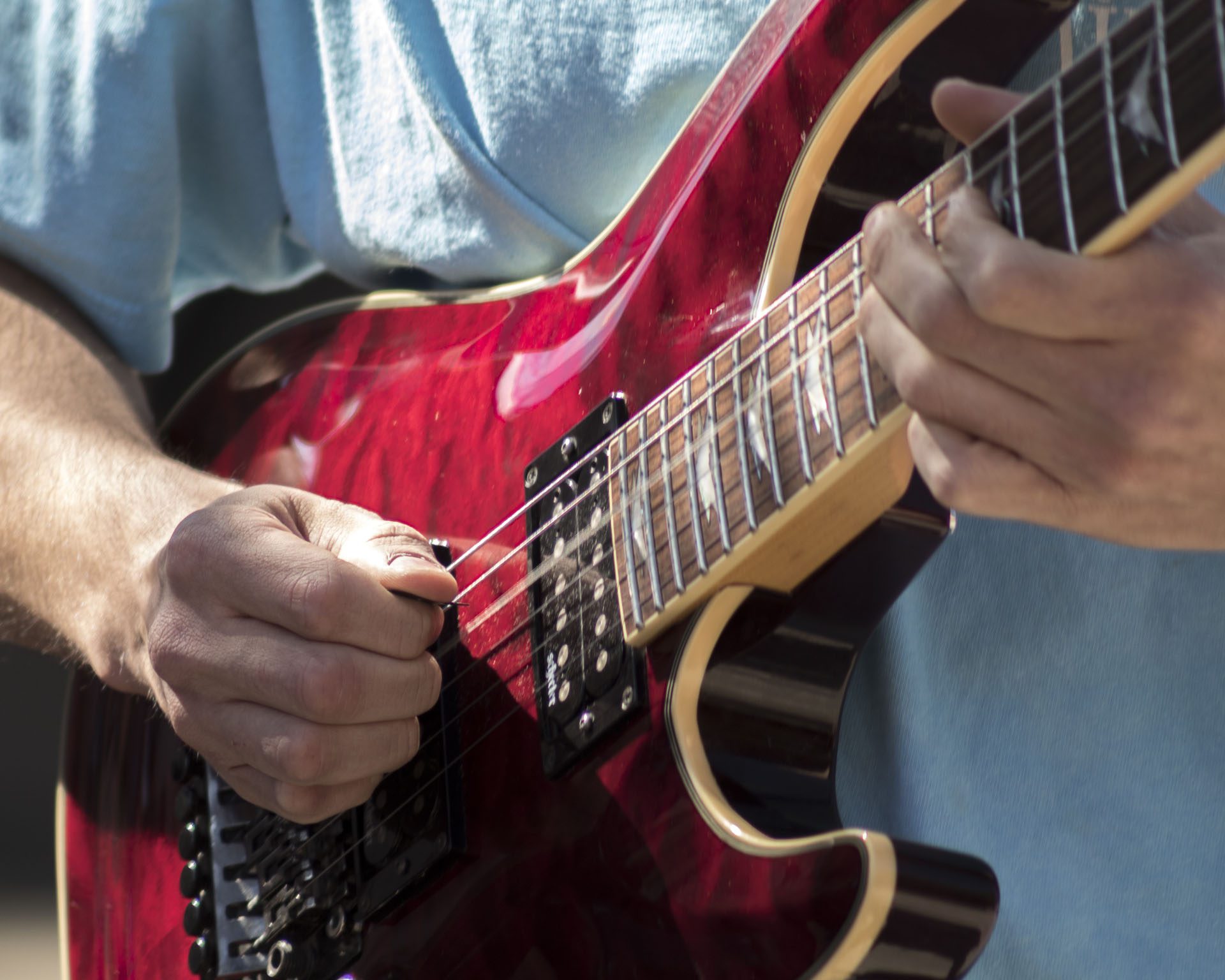Musician Injury Recovery Solutions at Chiromed

Chiropractic Solutions for Musicians: Guitarists, Bassists, and Tendonitis Recovery
Music demands more than creativity—it demands physical resilience. Guitarists and bassists use fine motor control, repetitive hand motions, and sustained postures that can stress the body over time. The result is often repetitive strain injuries (RSIs) and tendonitis affecting the wrist, hand, forearm, elbow, and shoulder (Folkways, n.d.; BMC, 2022).
At Chiromed, our approach combines chiropractic adjustments, diagnostic imaging, integrative rehabilitation, and functional care to address these issues. For musicians, this means not only pain relief but also restoring function, preventing recurrence, and supporting a long career.
Why Guitarists and Bassists Develop RSIs
Unlike some performers, guitarists and bassists often maintain static positions, requiring constant fine motor activity. They repeat the same micro-movements for hours: pressing strings, strumming, plucking, and bending notes.
Key factors that raise injury risk include:
- Repetitive finger and wrist motion (Guitar Strength Project, n.d.)
- Sustained wrist extension/flexion (Pain Free NYC, 2023)
- Heavy instruments stressing the shoulder (Beech Street Health, 2022)
- Poor technique or ergonomics (Tennis Elbow Classroom, n.d.)
- Long practice sessions without rest (Notreble, 2011)
Over time, these contribute to microtears in tendons, nerve irritation, and musculoskeletal imbalance.
Understanding Tendonitis in Musicians
Tendonitis is an inflammation of the tendons that occurs due to overuse. For guitarists and bassists, common sites include:
- Hand/Wrist tendonitis – pain with chord changes or rapid picking (Pinnacle Hill Chiropractic, 2024).
- Forearm tendonitis – aching and weakness from extended rehearsals (Healthline, 2023).
- Elbow tendonitis (“guitar elbow”) – pain around the lateral epicondyle (ChiroOne, 2023).
- Shoulder tendonitis – stiffness from holding heavy instruments for long periods (Stamford Spine, 2024).
- Carpal tunnel overlap – tingling or numbness from nerve compression (Rawlogy, 2021).
Left untreated, tendonitis may become chronic, leading to scarring, degeneration, and performance loss (Mayo Clinic, 2023).
Traditional Management vs. Integrative Care
Conventional care often includes:
- Rest and ice (Mayo Clinic, 2023)
- Anti-inflammatory medication
- Splints or braces
- Physical therapy
While helpful, these approaches may not address underlying biomechanical stressors.
Chiromed’s integrative approach focuses on:
- Correcting spinal/joint dysfunction that adds stress to tendons
- Enhancing neuromuscular balance
- Using diagnostic imaging to target precise injuries
- Combining chiropractic care with soft tissue therapy and rehabilitative exercise
This ensures musicians don’t just recover, but perform stronger.
Chiropractic Care for Musicians’ Tendonitis
Evidence shows chiropractic treatment relieves tendon pain and restores function by reducing restrictions and improving biomechanics (Stamford Spine, 2024; Bend Total Body Chiropractic, 2024).
Key techniques at Chiromed:
- Spinal & extremity adjustments – restore alignment and reduce joint load.
- Soft tissue therapies – myofascial release, trigger point therapy, IASTM.
- Rehabilitative exercises – eccentric tendon loading, mobility drills, and stabilizer strengthening.
- Posture and ergonomics coaching – strap adjustment, wrist positioning, warm-ups.
- Maintenance care – scheduled adjustments and check-ins to prevent recurrence.
Integrative Therapies That Enhance Recovery
At Chiromed, chiropractic works within a collaborative framework:
- Massage therapy – reduces tension in overworked muscles (Rawlogy, 2021).
- Acupuncture – improves circulation and reduces inflammation.
- Nutritional guidance – supports tendon healing with anti-inflammatory strategies.
- Osteopathic collaboration – for additional mobility and joint support (Beech Street Health, 2022).
This integrative plan ensures healing at both the local and systemic levels.
Evidence-Based Prevention Strategies for Musicians
Musicians can reduce injury risk with simple habits:
- Stretch and warm up before playing.
- Take regular breaks during practice.
- Use ergonomic instruments or lighter strings.
- Maintain neutral wrist alignment when possible.
- Strengthen the forearm, shoulder, and postural muscles.
- Schedule routine chiropractic check-ups for proactive care (Midtown Family Wellness, 2023).
Conclusion
Guitarists and bassists are uniquely vulnerable to RSIs and tendonitis because of the physical demands of their craft. At Chiromed, our evidence-based, integrative chiropractic model restores joint health, promotes tendon healing, and prevents relapse.
By blending diagnostic imaging, chiropractic care, rehabilitative therapy, massage, and functional guidance, we help musicians not only recover from injury but also optimize long-term performance.
For musicians seeking to play pain-free and protect their passion, chiropractic care at Chiromed offers a sustainable, holistic path to recovery.
References
- Beech Street Health. (2022). Are you a musician? Osteopathy can help.
- Bend Total Body Chiropractic. (2024). Chiropractic care for tendonitis: A comprehensive guide to relieving pain.
- BMC. (2022). Posture as a risk factor for musicians.
- ChiroOne. (2023). Treating tennis elbow with chiropractic.
- Cospine & Joint. (2023). Chiropractic helps tendonitis.
- Folkways. (n.d.). Art endures: Musicians and repetitive strain.
- Guitar Strength Project. (n.d.). Guitar tendonitis.
- Healthline. (2023). Forearm tendonitis.
- Mayo Clinic. (2023). Tendinitis – diagnosis and treatment.
- Midtown Family Wellness. (2023). Understanding tennis elbow and how chiropractic care can help.
- Notreble. (2011). Health & fitness for the working bassist.
- Pain Free NYC. (2023). For musicians: Guitar & bass players.
- Pinnacle Hill Chiropractic. (2024). Chiropractic care for musicians with wrist pain.
- Rawlogy. (2021). Musicians and carpal tunnel.
- Stamford Spine. (2024). Chiropractic solutions for elbow tendonitis.
- Tennis Elbow Classroom. (n.d.). Guitar elbow and repetitive injuries.

